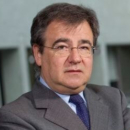
Mario Aymerich
Advisory Panel
Spain
Former Director of the Environment and Regional Development, Projects Directorate, European Investment Bank
Mario Aymerich carried out his graduate studies in Civil Engineering and completed his post-graduate/doctorate studies in Transport and Urban Planning at the Polytechnic Universities of Catalunya (UPC) and Madrid (UPM). During the 1980s, he worked as a civil servant at the Municipality of Barcelona. During 1990s, Aymerich worked as an Engineering Executive in a private multi-national company which had strong participation in the European Commission’s research projects and was Manager of the UK branch of the company. He has been a part-time professor at UPC and UPM (Transport Planning and Economics) and is the author of more than 50 articles, some 150 presentations and co-author of 6 technical books.
Since he joined the European Investment Bank in January 1999, he always worked in multidisciplinary teams involved in the appraisal and monitoring of lending operations related to large-scale infrastructure projects, notably in the transport and urban/regional development sectors. Special attention was dedicated to PPP operations and Technical Risk Analysis. As Director of the Environment and Regional Department since 2011, he was presented with the opportunity to be involved with many interesting projects and technical advisory services in very diverse fields, with the common denominator of all these being their extraordinary potential in relation to environmental sustainability and resilience to climate change. He also worked as Managerial Advisor to the Director General of the Projects Directorate.
Aside from regularly giving master classes at various educational institutions, since 2013 he has been collaborating with the European Investment Bank Institute in several fields, such as the supervision of several research activities funded by the Institute and participation in the 7 Most Endangered programme.
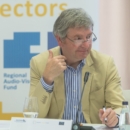
Graham Bell
Advisory Panel
United Kingdom
Board Member of Europa Nostra
Graham Bell was the UK national coordinator for 2018 European Year of Cultural Heritage and now is involved in a range of follow-up initiatives as part of the European Framework for Action on Cultural Heritage to ensure cultural heritage is represented across all European agendas. He is involved in European Commission policies such as Voices of Culture on emerging skills, Strategy 21, UNESCO’s Ruritage replicators, Europeana’s forward plan for digital intangible cultural heritage, working with the ViMM project on digital cultural heritage and the BIM4Heritage group. As Director of Cultura Trust, founder of the Hungarian Renaissance Foundation and as board member of Europa Nostra and of the executive of the Foundation for European Architectural Heritage Skills, he is a participant in a range of Erasmus+, Horizon 2020 and other partnership programmes on project management, sustainability and cultural tourism. He has been an assessor of Europa Nostra awards and its representative at local award ceremonies across Europe. His experience as project manager in rescue and reuse of landmark historic sites has informed his role on the 7ME Advisory Panel and in mission visits in Serbia (Subotica synagogue), Bulgaria (Buzludzha house-monument) and the UK (Grimsby Ice Factory). He is a longstanding specialist adviser to the UK National Trust, was a founder member of Future for Religious Heritage and now advises the Jewish Heritage Foundation. He is a member of ICOMOS Hungary and a Fellow of the Royal Society of Arts, Manufactures and Commerce. He is a frequent keynote speaker at conferences across Europe on themes such as the future of museums, the role of cultural heritage in the circular economy and environment, and has been a course tutor in cultural heritage management at postgraduate level in the UK, Hungary, Slovakia and Serbia.
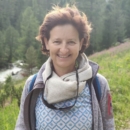
Gaianè Casnati
Advisory Panel
Armenia / Italy
Council Member of Europa Nostra
Gaianè Casnati is a conservator architect, Director of the Cultural Heritage department of the Centro Studi e Documentazione della Cultura Armena (CSDCA) and Research Fellow in Architectural conservation at Politecnico di Milano. Casnati is author of several preservation projects in Italy and abroad (i.e. the preservation of the Roman amphitheatre of Milan, the safeguard of the entrance tower of Shayzar castle in Syria, the structural repair of the katoghiké church of Marmashen in Armenia) and is editor/author of a number of publications on Armenian heritage conservation (several articles and 3 books). She has organised three exhibits on Armenian themes (that travelled in Armenia and in Europe) and has spoken at international congresses (in Italy, Armenia, France, Belgium, Austria, etc.). She has been working for CSDCA and Politecnico di Milano on projects in Armenia for organizations as UNESCO, the Italian Ministry of Foreign Affairs, Europa Nostra and the World Bank. She has been project manager for the project Restoration Training in Armenia, awarded by Europa Nostra in 2015 in the category Education, Training and Awareness Raising.
Gaianè Casnati has been a Council Member of Europa Nostra since 2018.
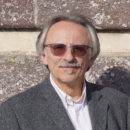
Guy Clausse
Advisory Panel
Luxembourg
Executive Vice-President of Europa Nostra
Guy Clausse studied Economics and Business Administration at the Universität zu Köln (Diplom-Volkswirt 1975; Dr.rer.pol. 1979).
He worked as a Teaching Assistant at Cologne University from 1972 to 1975, and as an Assistant Professor until 1980. He then became the Executive Secretary of the Instituto de Estudos para o Desenvolvimento in Lisbon; being on secondment from the Research Department of the Friedrich Ebert Foundation in Bonn.
Guy Clausse joined the European Investment Bank (EIB) in 1985 as a senior economist in the Economic Studies Department, and then became Coordinator and Head of Division within the Lending Operations and Projects Directorates. In 2004 he took up the position of Associate Director of the Policy Support Department. In 2007 Clausse was appointed as Director of the Convergence and Environment Department and then of the Environment and Regional Development Department. He has been a Special Advisor to the Director-General since 2011.
Guy Clausse was nominated as Dean of the recently created EIB Institute in 2014. During his mandate, the 7 Most Endangered programme, established by Europa Nostra in partnership with the EIB Institute, was further developed. He continues to cooperate with the EIB Institute, following his retirement at the end of 2015. He is a committee member of several social and charitable associations.
In 2018, Guy Clausse was appointed as Executive Vice-President of Europa Nostra.
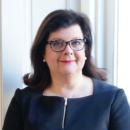
Lilian Grootswagers
Advisory Panel
Netherlands
Lilian Grootswagers-Theuns is the owner of Erfgoed.nu, she advises governmental institutions, cooperations and private owners in heritage related issues. Specialty: monument legislation, grants, research, religious heritage issues, conversion, spatial planning and re-use and redesign of heritage. Erfgoed.nu goal is to give heritage buildings a purpose in nowadays society. Therefore an integrated approach is a necessity. She is a council member (honorary secretary) of FRH Future for Religious Heritage, a non-faith European-wide organisation on places of worship based in Brussels. She was the representative of FRH in the structured dialogue between the European Commission and the cultural sector during the EYCH 2018. She represents FRH in the European Commission Cultural Heritage Group as of 2019.. She is a member of the European Heritage Alliance since its foundation in 2011. She is Vice-Chair of task force Toekomst Kerkgebouwen, a national and independent citizen’s movement in the Netherlands aiming to re-establish religious buildings as living elements of the urban and rural landscape and communities.
She is the author and publisher of several guidelines and handbooks on re-use of listed buildings, as well as a guest lecturer of HAN University of Applied Sciences: Repurpose and Monuments Module Cooperation (2011). She is the author of guidelines for religious heritage Gelderland (2009) “Oren van Steen” (2011) and “Future of our built history, guidelines for re-use” (2014). She is board member of Erfgoedlab, a not-for-profit organisation, a “delivery room” for new ideas, and initiatives in the field of heritage which have a national impact. The laboratory drives innovative projects in the heritage sector and ensures these projects are embedded in the sector and are able to run independently after the pilot phase. Some examples are the Dutch “Erfgoedstem”- The National Monumentencongres and the Monumentenmonitor. Actual project is the pilot of the European Heritage Tribune, which is also supported by Europa Nostra. She was one of the initiators of the first Open Churches Days in Noord Brabant in 2017, which resulted in a new foundation Openkerkendag and expands its activities this year to Noord Brabant and Zeeland. Furthermore she has been granted the Brabant Bokaal by the Prince Bernhard Foundation in 2014, for her voluntary and innovative work in the field of religious heritage. As of 2014 she is one of the 21 Brabantse Hoeders, special protectors of the cultural heritage in the province.
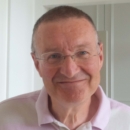
Tom Hackett
Advisory Panel
United Kingdom
Former and Honorary Director General of European Investment Bank (EIB)
Tom Hackett was, until August 2012 when he retired, a Member of the Board of Directors of the European Bank for Reconstruction and Development (EBRD) and Executive Director of the European Investment Bank (EIB) with a remit to help develop activity between the two international financial institutions in Central and Eastern Europe, Russia, Turkey and Ukraine.
Before joining the EBRD in May 2010, Tom Hackett was Director-General at EIB from July 2005 and was in charge of its lending to the 27 Member States of the EU, Turkey and the Western Balkans. During that period, and especially in response to the financial and economic crisis, EIB’s European annual lending rose to 75 billion euro. Prior to that, he was in charge of EIB lending in various EU regions including Poland and the Nordic countries (from 2004), Italy and Greece (from 1999) and the UK (from 1994). Tom Hackett began his EIB career in 1981 in capital markets and his banking career in 1968 with S. G. Warburg.
Tom Hackett was a trustee of Fulham Palace Trust until he reached the renewal limit and remains a trustee of Bishop Creighton House, Fulham, London. He is a Director of Retail Charity Bonds Plc, a platform to enable charities to obtain long-term funding for self-financing projects.
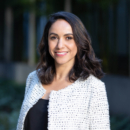
Nada Hosking
Advisory Panel
United States
Executive Director of Global Heritage Fund
Nada Hosking has 20 years of experience in social impact roles, spanning corporate settings, development agencies, and nonprofit organizations. She is dedicated to supporting global cultural and ecological projects and currently serves on the advisory boards of The Big Wild and Europa Nostra, a pan-European federation that champions Europe’s cultural and natural heritage. During her time as the executive director of the Global Heritage Fund, Hosking played a key role in expanding the organization’s reach to over 28 locations, emphasizing the interplay between cultural and natural heritage in aiding economic development within communities. Hosking holds degrees in anthropology and the history of art from the University of California, Berkeley.
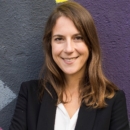
Višnja Kisić
Advisory Panel
Serbia
Višnja Kisić is a researcher, educator and practitioner in heritage and museum field, whose work focuses on relations between heritage, contemporary politics, societal issues and identities. She has acted as a Secretary General of Europa Nostra Serbia since 2011, where she led numerous projects related to heritage interpretation, management and safeguarding, including the successful “7 Most Endangered” nomination and follow up for the Subotica Synagogue; the campaign against the cable-car project at the Belgrade Fortress; and Case Petrovaradin: Managing Historic Urban Landscapes, international capacity building and management scheme for the Petrovaradin Fortress. She has co-authored and acted as a consultant for over 10 interpretation and management plans for heritage sites in South East Europe and is a member of the team for the Nomination of the Historic City of Bač with its Surroundings for the UNESCO WHL. Previously, she has worked in educational and curatorial departments of Museum of Art and Archaeology in Columbia USA, Peggy Guggenheim Museum in Venice, Venice Biennale and National Museum in Belgrade. She has led trainings, research, capacity building programmes and given lectures in over 20 countries in Europe, North Africa, Asia and South America.
Višnja holds a BA in Art History, an MA in Cultural Policy and Management, and a PhD in Museum and Heritage Studies. She is assistant professor at the Faculty of Sport and Tourism in Novi Sad, a lecturer at the UNESCO Chair in Cultural Policy and Management at the University of Arts in Belgrade and at the MA on Cultural Policy and Management at the University Hassan II in Casablanca, as well as visiting professor at the University of Lyon II and University of International Relations in Beijing. She has published widely on heritage policy, participatory governance and citizen engagement in the heritage field, as well as on heritage led conflicts and reconciliation politics in South East Europe. Her research Governing Heritage Dissonance: Promises and Realities of Cultural Policies, dealing with heritage-led reconciliation in the Southeast Europe has been awarded the European Cultural Policy Research Award. She is a Board Member of the South East European Heritage Network, and a member of the Balkan Museum Network, ICOM and the Association of Critical Heritage Studies.
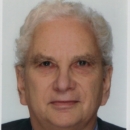
Laurent Lévi-Strauss
Advisory Panel
France
Board Member of Europa Nostra
Laurent Lévi-Strauss is Chargé de Mission to the President of the Fondation Maison des Sciences de l’Homme in Paris and former Chargé de Mission to the Director of the project for the new Musée de l’Homme (Museum of Man). He is Member of the Board of Europa Nostra, and, also, member of the Commission of Ethics for the Museums of the City of Geneva.
During some 15 years, he worked at UNESCO, namely as Deputy Director of the Division of Cultural Heritage, where he supervised the implementation of numerous international safeguarding projects, as for Angkor, Afghanistan, Iraq and Bosnia and Herzegovina, among others, and later the operational and juridical activities for the support of museums and the safeguarding of cultural objects, including the implementation of international conventions. Previously, he worked at the French Ministry of Culture, as Deputy-Director of the Ecole Nationale Supérieure des Beaux-Arts in Paris, then as Director of the Office of the President of the public television channel Antenne 2 (now France 2).
He holds a diploma of the Institut d’Etudes Politiques of Paris and a doctorate (PhD) in Sociology from the University of Paris X. He has published several books and articles concerning cultural heritage and its preservation.
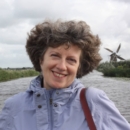
Laurie Neale
Advisory Panel
Netherlands / Canada
Council Member of Europa Nostra.
A professional architect (McGill University), Laurie Neale wrote her Master’s thesis (Bartlett School of Architecture and Planning, University College London) on the effects of our urban architecture and spaces on individual behaviour and social interaction through the theory and methods of Space Syntax. Living in Europe (The Hague, Brussels), she has worked for fifteen years on the safeguarding of cultural heritage at Europa Nostra: as manager of the EU Prize for Cultural Heritage / Europa Nostra Awards; as head of Communications; as head of the Heritage in Danger programme; and as member of its advisory Council since 2012. She has been an expert evaluator of cultural heritage projects and advisor for a number of European and International stakeholders (EEA+Norway Grants FMO, ASEF, Europeana …). She served on the Netherlands National Commission to UNESCO’s Thematic Group Post-Conflict Middle-East & North Africa, and is a member of ICOMOS Nederland.
Also living in Montreal Canada, Laurie is engaged with local and national heritage and sustainable city communities while pursuing a Fine Arts degree in sculpture at Concordia University. She works in multiple disciplines and materials (metal, wood, stone, fibres …) and focuses on conveying messages of social-spatial dialectics.
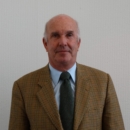
Charles Pictet
Advisory Panel
Switzerland
Banker, Council Member of Europa Nostra
Charles Pictet has had a long career in private banking which began in 1969 in the eponymous house Pictet & Cie. There he became a Senior Partner for almost 10 years until 2005, the moment at which he joined the Swiss Financial Market Supervisory Authority (FINMA). Throughout the years, he was also member of various professional committees and councils.
However, Charles Pictet has always wanted to juggle his passion for his work and family life, with his spouse and three children, with a very active career in the cultural domain, his second field of expertise. He realised this aspiration within Pictet’s bank which has always had a proud tradition of supporting various organizations or projects in this field. Today the bank supports cultural programs through a foundation while Mr. Pictet does so, on a personal basis, in particular as a former President of the Circle of the Grand Théâtre de Genève from 2002 to 2010. He has also been the Vice-President of the Council of Foundation of the International Red Cross Museum since 2007; a Foundation which has steered the development of the new Musée de l’Espoir (Museum of Hope) meant to open in May 2013. Finally, Mr Pictet has also been acting for a project he is very proud of, the restoration of the windmills of Patmos which won a European Union Prize for Cultural Heritage / Europa Nostra Award in 2012. Charles Pictet has always seen culture as heritage that should be protected as a whole, and therefore has developed interests related to the fields of music, charity and architecture.
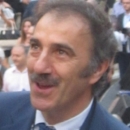
Pedro Ponce de León
Advisory Panel
Spain
Born in Madrid in 1957, Pedro Ponce de León studied Architecture at the Politechnical University in Madrid, reaching the degree of Architect in 1979 and Doctorate (with Cum Laude honours). Between 1980 and 1982 he worked as architect of the Spanish Archeological Mission in Jordan. In 1984 he received a scholarship from a Private Foundation in order to study Architectural Restoration in the International Center for the Study of the Preservation and Restoration of Cultural Property (ICCROM) at the Spanish Academy in Rome. His study about its cloisters was published in 1986 in the journal of the Royal Academy of Fine Arts.
He founded “Pedro Ponce de León, Architects” in 1980, with a deep specialisation in cultural and architectural heritage activities, and large experience in the intervention on Heritage buildings and monuments, from the preliminary diagnose to the Executive Project design and also, the project management works, providing technical assistance as well as criteria, building procedures, planning and economic audit.
More than 40 design and executive projects developed in different countries (Spain, Cuba, Albania, Greece, Mali, Western Balkan countries, etc. See page http://pedroponcedeleon.es/en/). Pedro Ponce de Leon has participated as an expert in some missions for the 7 Most Endangered programme of Europa Nostra, including Gjirokastra (Albania), Venice Lagoon (Italy), the Mafra National Palace, the Monastery and Church of Jesus in Sétubal (Portugal). He also has prepared feasibility reports for the Roman Amphitheatre in Dürres (Albania) and the Historic City of Kastoria (Greece). He is a consultant architect for the Division of Cultural and Natural Heritage (Council of Europe), consultant for different agencies: AECI (Spanish Agency for International Cooperation), CEB; Member of the Royal Academy of History and the Spanish-Belgium Academy. Member of ICOMOS (Spanish Council Committee), ICOM.
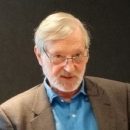
John Sell
Non Voting Chair
United Kingdom
Architect, Project Manager and Lecturer
John Sell is an architect and has worked on a wide range of historic buildings for more than 35 years. His clients include the European Union, the British Council, English Heritage, the Crown Estate and the National Trust.
Sell is Chair of the Joint Committee of National Amenity Societies (UK), which brings together all the national non-governmental bodies concerned with the historic environment mentioned in planning legislation, and Chair of the Historic Environment Forum, which brings together all the major governmental and non-governmental heritage bodies in England. He has particular experience in working in Central and Eastern Europe and in tourism projects based on cultural heritage. He was part of the team which prepared pilot ‘heritage trail’ projects in Bulgaria and Slovenia and was organiser of a conference in Bosnia-Herzegovina on ‘Sustainable Development in Rural Areas’ to develop ‘bottom-up’ methodologies for local development and participation.
Publications include ‘First Aid Repair to War Damaged Buildings’ (published in English and Croatian) and ‘Heritage and Reconciliation in Bosnia’. John Sell has lectured widely on conservation matters, particularly on conservation philosophy and the social value of the historic environment.
John Sell was Executive Vice-President of Europa Nostra between 2009 and 2018.
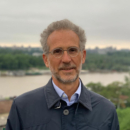
Paolo Vitti
Advisory Panel
Italy
Board Member of Europa Nostra
Paolo Vitti is an architect and historian with over thirty years of experience in the areas of Ancient and Modern architecture and the restoration of cultural heritage sites. Vitti presently holds teaching appointments in both Italian and American universities. His work includes collaborations with national and international institutions, in the academic and professional field, as well as courses on conservation for architects and archaeologists of the Moroccan Ministry of Culture.
Vitti has authored many essays on restoration, museology, history of architecture and ancient construction, and specialises in the study of Mediterranean architecture, having made important achievements in the study of Ancient architecture. He has actively contributed to the activities of the Italian School of Archaeology in Athens since 2001.
His studies, reflected in more than 50 articles and a monograph, have greatly contributed to scholarship in the history of architecture. His research on Roman architecture in Greece and on the Mausoleum of Hadrian received the Grand Prix of the EU Prize for Cultural Heritage / Europa Nostra Award in 2014 and the L’Erma di Bretschneider Archaeology Award. His design for the restoration of the Armenian Church and Monastery in Nicosia, Cyprus, received an EU Prize for Cultural Heritage / Europa Nostra Award in 2015.
Paolo Vitti has been a Board Member of Europa Nostra since 2018.
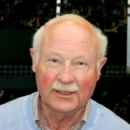
Rienko Wilton
Advisory Panel
Netherlands
Founding Secretary of Europa Nostra’s Industrial and Engineering Heritage Committee (IEHC)
Growing up at his grandfather’s shipyard in Rotterdam and destined to become the fourth generation of shipbuilding naval architects, Rienko Wilton’s career followed a different path. He obtained a Master’s degree in Contemporary History of the Balkans and the Middle East at the University of Amsterdam and served as a Beirut based Middle East Correspondent for the Dutch and Belgian media in the 1970s. He joined the Dutch Diplomatic Service in 1982 and held postings in The Hague, Canberra, Bonn (as Cultural Attaché), Stockholm and Valletta (as Ambassador).
Wilton joined Europa Nostra as a volunteer in 2006. He was the driving force behind the creation of Europa Nostra’s IEHC in 2008 and served as its Secretary until 2016. The IEHC has been active in various fields: not only in trying to save endangered industrial heritage (Berliner Gaslight, Colbert Swing Bridge, Dieppe (France) and Venice’s Arsenale, for example) but also in advising at political level (Industrial Heritage Report for the Parliamentary Assembly of the Council of Europe, for example).
Since 2009, Rienko Wilton has been an Assessor for the Jury of the European Heritage Awards / Europa Nostra Awards and was its representative at Local Award Ceremonies in the Netherlands. In 2011, Wilton was appointed member of Europa Nostra’s Audit Committee. In that same year, he was a member of the Organising Committee of Europa Nostra’s Annual Congress in Amsterdam. For the last nine years, Rienko Wilton has coordinated the organisation of excursions to industrial heritage sites in the cities that have hosted Europa Nostra’s Congresses, namely Istanbul, Amsterdam, Lisbon, Athens, Vienna, Oslo, Madrid, Turku and Paris.

